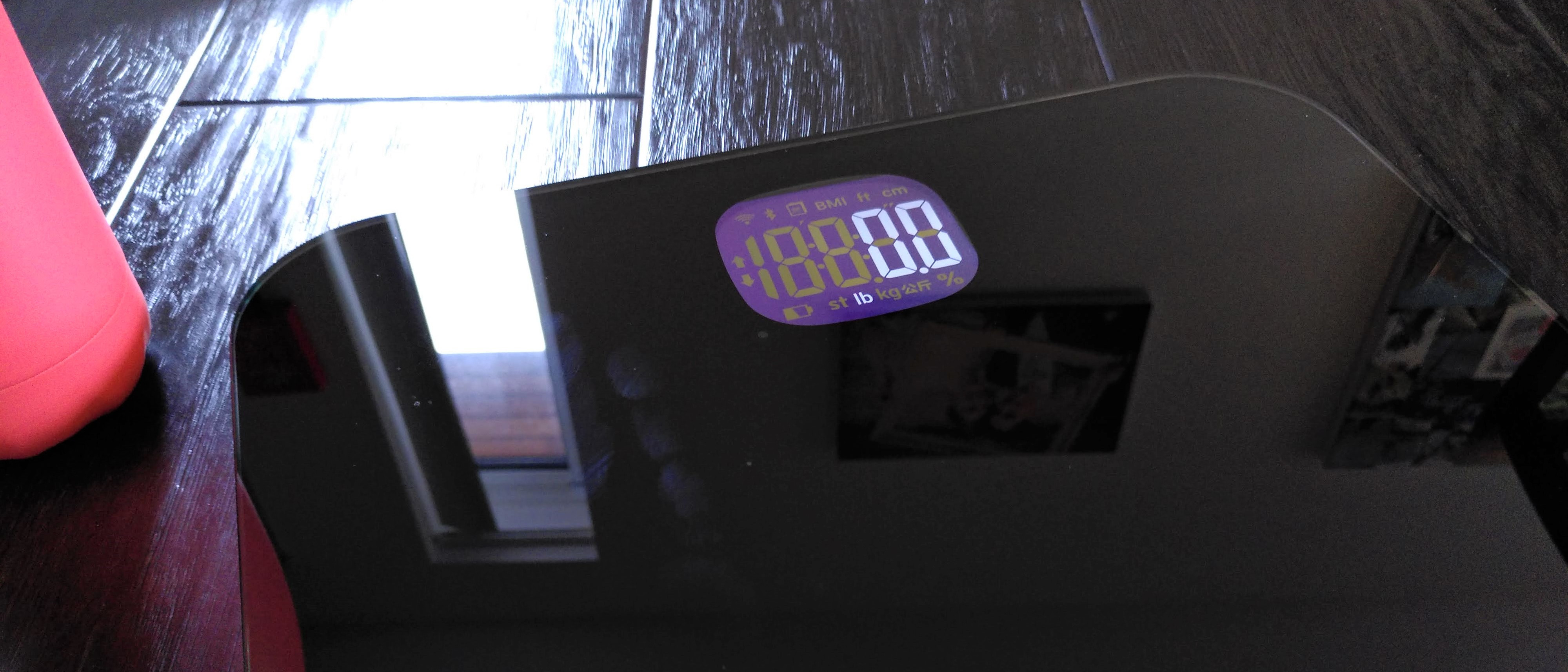TechRadar Verdict
If you're a Fitbit owner looking for a quick and easy way to track your weight, the Fitbit Aria Air is a solid choice. It's well built and extremely simply to use, provided your phone is within Bluetooth range. Just open the app, step aboard, and your weight and BMI will sync automatically. There's no body composition data though, so if you're interested in checking out changes to fat and muscle mass over time, you'll need to look elsewhere. If your needs are simple, though, it's excellent.
Pros
- +
Quick Bluetooth syncing
- +
Supports multiple users
- +
Easy to use
- +
Accurate readings
Cons
- -
Doesn't store data
- -
No body composition
- -
Relatively heavy
Why you can trust TechRadar
Two-minute review
Before you invest in the Fitbit Aria Air, you should know that unlike other Fitbit smart scales, it doesn’t use a small electrical current to estimate your body composition (including far, muscle and bone mass) – a method known as bioimpedence. This means you’ll get a less complete picture of changes to your body, but means it’s safe for people with implanted devices such as pacemakers.
Instead, the Fitbit Aria Air measures weight (in imperial or metric units), and calculates your BMI using the height entered when you created your Fitbit account. This is synced immediately with the Fitbit mobile app, where you can track changes over time and see how close you are to meeting your target weight. It also makes it easy to see how any lifestyle changes, such as increased exercise or improved sleep patterns, may have affected your weight.
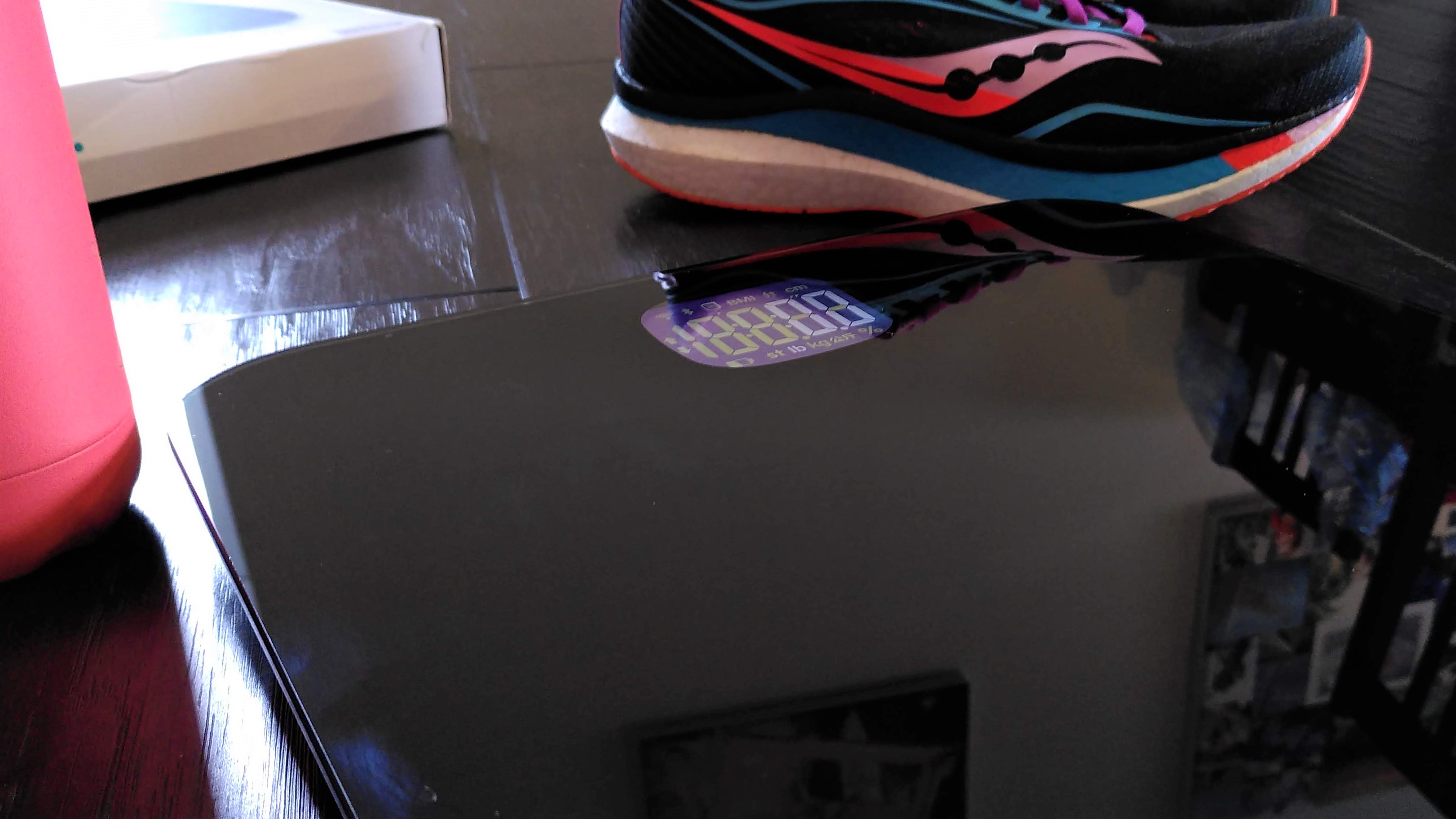
The Fitbit Aria Air connects to your phone via Bluetooth, and has no Wi-Fi connectivity. This means it’s very quick and easy to set up, with no need to enter the password for your home network, but your phone will need to be within Bluetooth range for your data to sync.
If you own a Fitbit smartwatch or fitness tracker, and aren’t particularly interested in the details of your body composition, then the Fitbit Aria Air is a good choice. It’s solidly built and easy to use, making it easy to get into the routing of weighing yourself regularly.
However, it’s not your only option. There are third-party scales (such as the Eufy Smart Scale C1) that are also excellent, and sync data with the Fitbit app as well. The setup isn’t quite as straightforward, as you’ll need to connect Eufy and Fitbit apps together, but if you’re on a budget then it’s a cheaper option well worth considering.
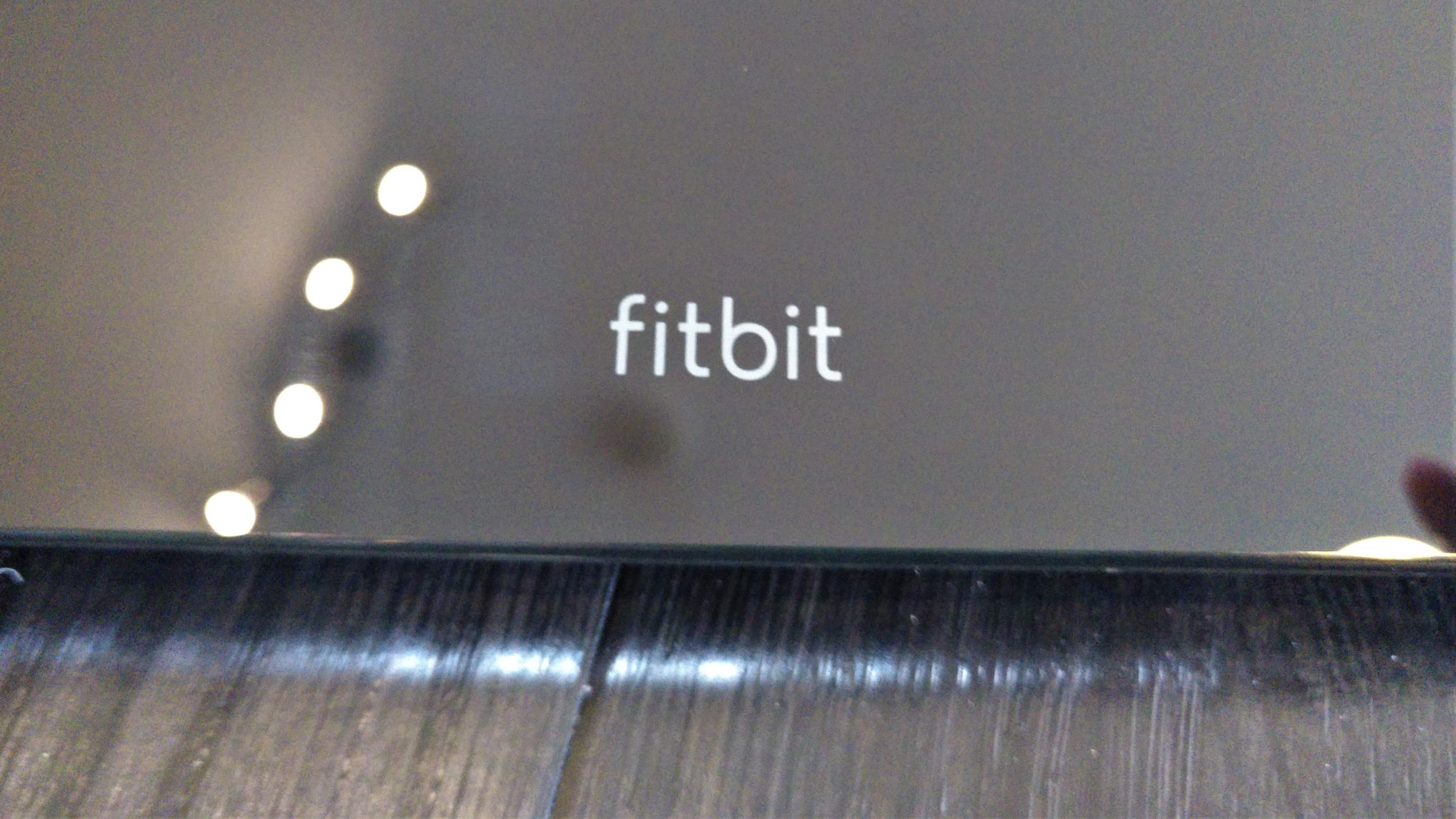
Price and release date
The Fitbit Aria Air was released in December 2019, and costs $49.95 / £49.99 / AU$99.95 direct from Fitbit.
For context, that's roughly the same as the FitTrack Dara (a Bluetooth-only body composition smart scale) and around twice the price of the Wi-Fi-enabled Withings Body+ body composition scale.
Design
The Fitbit Aria Air is available in black and white, and like almost all smart scales, has a platform topped with toughened glass. In our tests, this seemed particularly prone to fingerprints. It’s water-resistant, so you can wipe it with a dry towel if it gets wet in the bathroom, but we found marks were stubborn even when rubbed with a microfiber cloth.
It takes three AAA batteries, which are supplied. Its platform is large for a smart scale, measuring 12.8 x 12.8in (slightly bigger than the Withings Body+), Unlike some other scales, there are no marking to show the best place to position your feet, but as the scale doesn’t use bioimpedence, this shouldn’t be a problem.
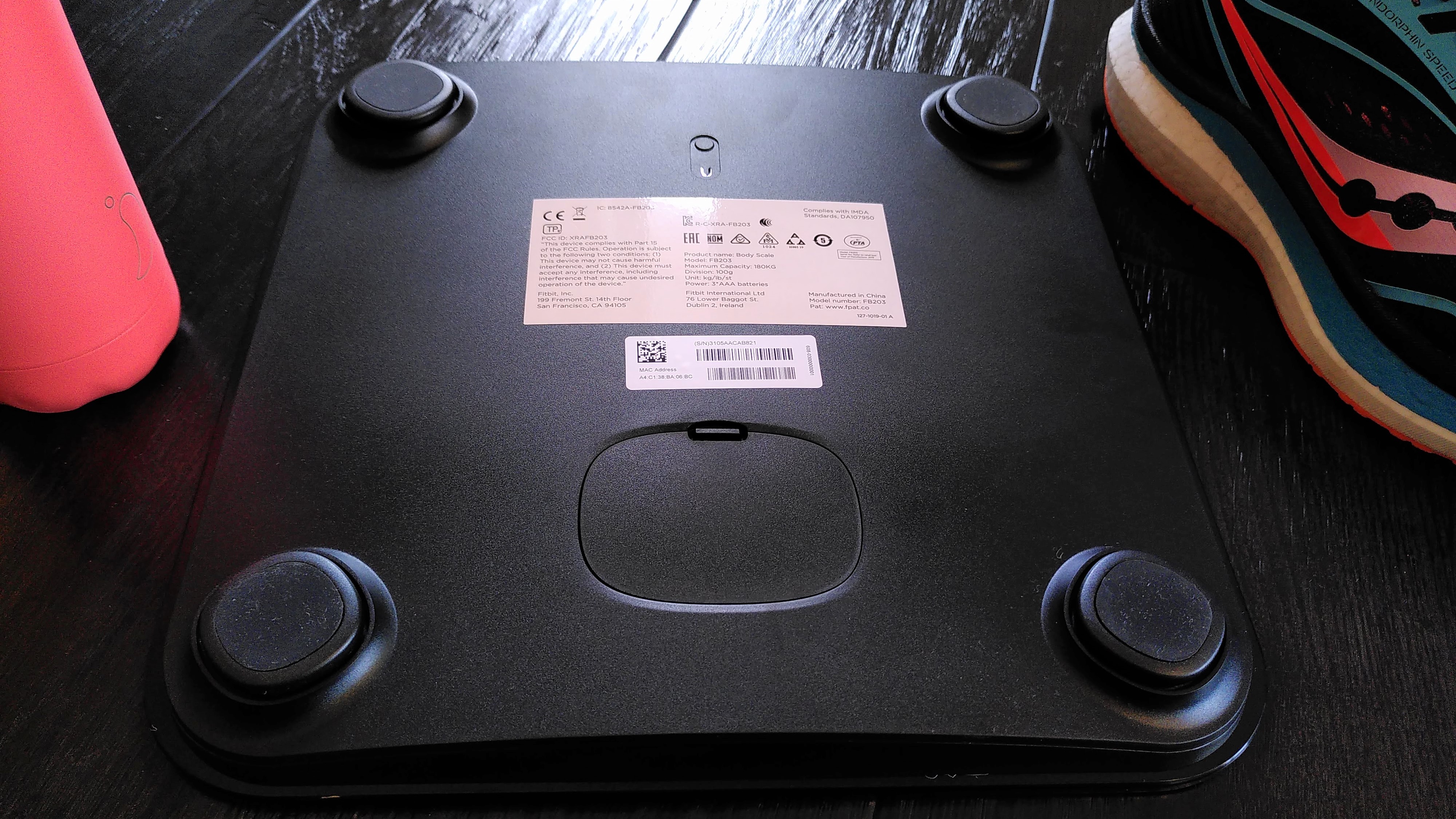
We were surprised how heavy the Fitbit Aria Air was. It weighs 3.9lb (1.7kg), which isn’t much less than Wi-Fi scales like the Garmin Index S2, and much less than the Eufy Smart Scale C1 Bluetooth scale. Fitbit advises always storing the scale upright, so you’re unlikely to be moving it often, but it’s something to bear in mind if space in your bathroom is limited.
User experience
Because the scale doesn't track body composition, it's unable to identify you unless your phone is within Bluetooth range. Step aboard without a connection and you'll see your weight, but your data won't be synced. It's not stored on the scale itself, as there would be no way to pin it to a particular user.
This could be inconvenient if you're not in the habit of taking your phone into the bathroom in the morning, but does mean there's no limit to the number of people who can use the scale. Most smart scales only support between four and 16 users, but the Aria Air has no such cap, provided each person has a Fitbit account.
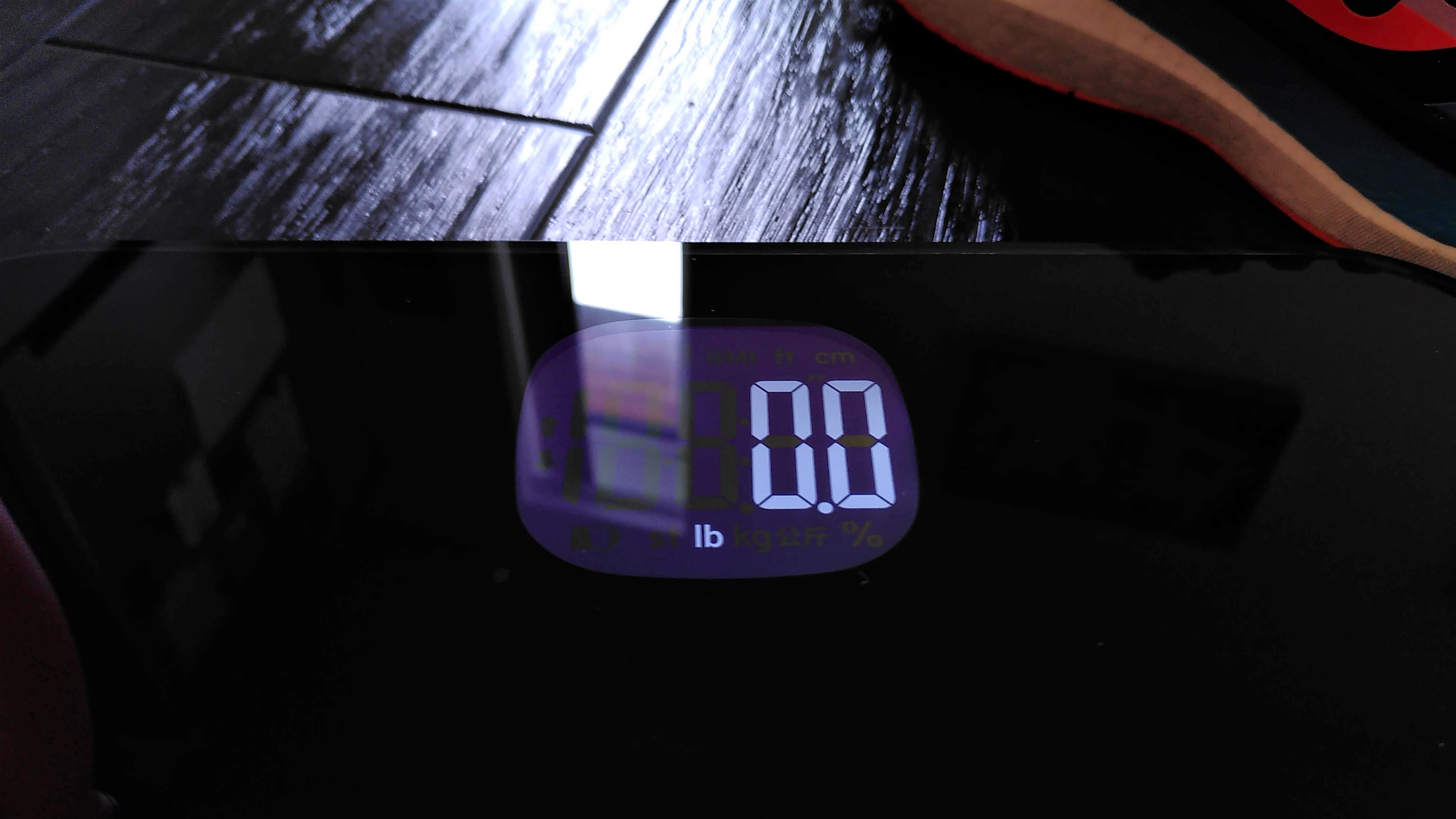
Weight is shown on the bright LED display as soon as you step on, and provided you have the Fitbit app open on your phone, it will appear there straight away. Unlike Salter's Bluetooth smart scales, there's no need to tap a button to initiate the syncing progress.
The Fitbit app will show changes to your weight and BMI over time (though it's a shame the same data isn't displayed on the scale's screen as well). Usefully, the app also shows 'idea' weight and BMI ranges, which adds useful context to the data, and is something missing from many smart scale apps.
The data presented was consistent across multiple weigh-ins (though Fitbit advises that you may need to weigh yourself a couple of times if you've moved the scale since it was last used), and lined up with that from the professional scale at our gym. As with any scale though, it's recommended to use the Fitbit Aria Air on a hard floor for the most accurate readings.
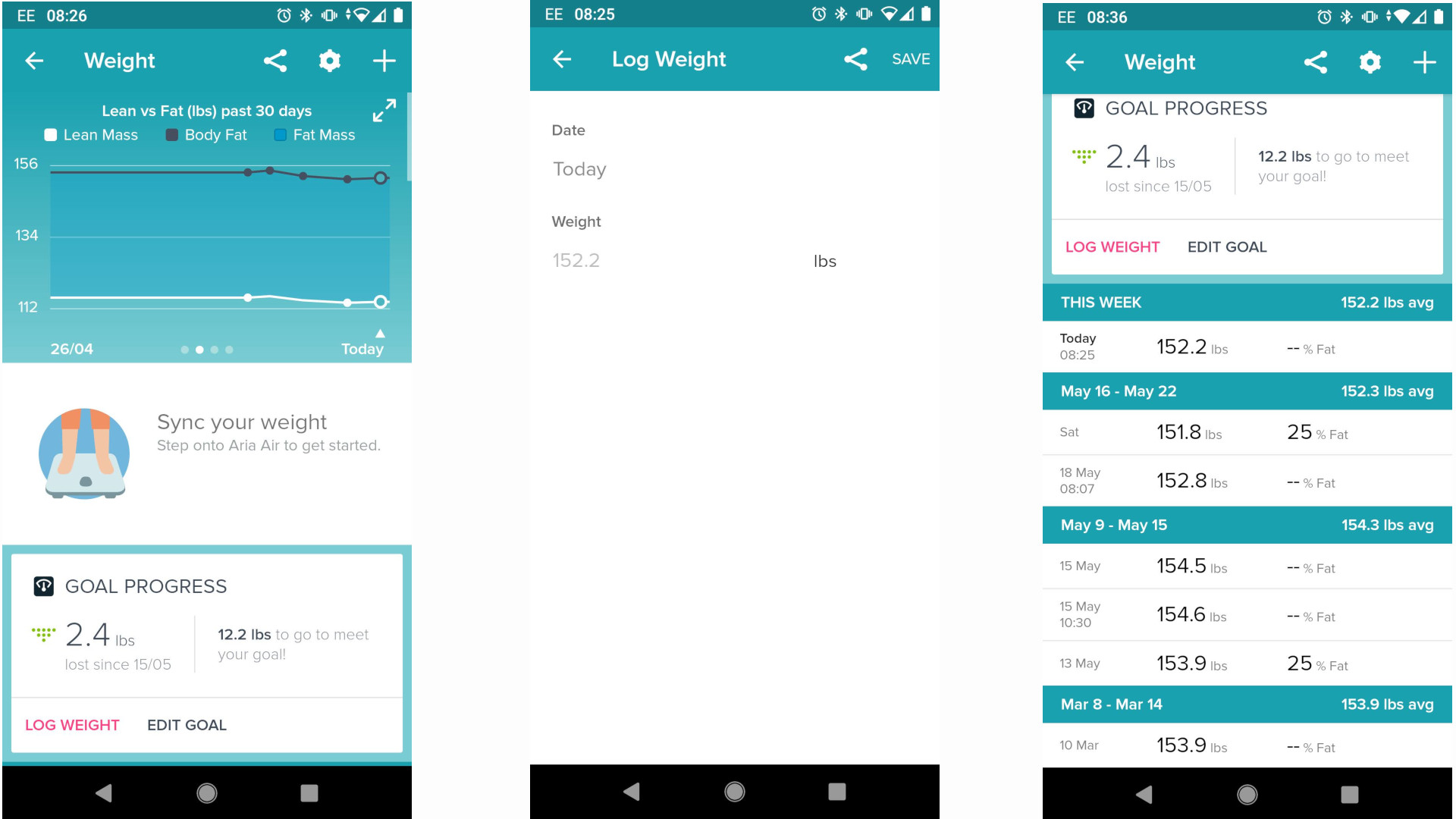
It's also worth noting that Fitbit adds new features to its smartphone app regularly, so it's possible that new tools that use your bodyweight or BMI might be developed in the future. This is a robust, well built scale that lacks frills, but could be a good investment if you're committed to the Fitbit ecosystem.
Buy it if
You own a Fitbit device
Data from the Fitbit Aria Air will sync with the Fitbit app on your phone, aggregating all your health data in one place and making it easy to see how lifestyle changes (such as increased activity) may have affected your weight,
You have a pacemaker or other implant
The Fitbit Aria Air doesn't use bioelectrical impedance, which makes it safe for people with implants to use.
You have a large family
There's no limit on the number of people who can use a single scale, and it's solidly built to withstand a lot of use.
Don't buy it if
You don't own a Fitbit
If you're not also syncing your activity and sleep data with the Fitbit app, you won't be getting the most possible out of the Fitbit Aria Air, as you won't be able to see how lifestyle changes affect your weight.
You want in-depth insights
The Fitbit Aria Air shows weight and BMI, and nothing more. If you want to track changes to your fat and muscle mass, you'll need to check out bioelectrical impedance scales.
- We've tested and ranked the best fitness trackers

Cat is TechRadar's Homes Editor specializing in kitchen appliances and smart home technology. She's been a tech journalist for 15 years, having worked on print magazines including PC Plus and PC Format, and is a Speciality Coffee Association (SCA) certified barista. Whether you want to invest in some smart lights or pick up a new espresso machine, she's the right person to help.
